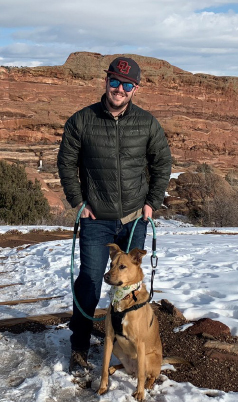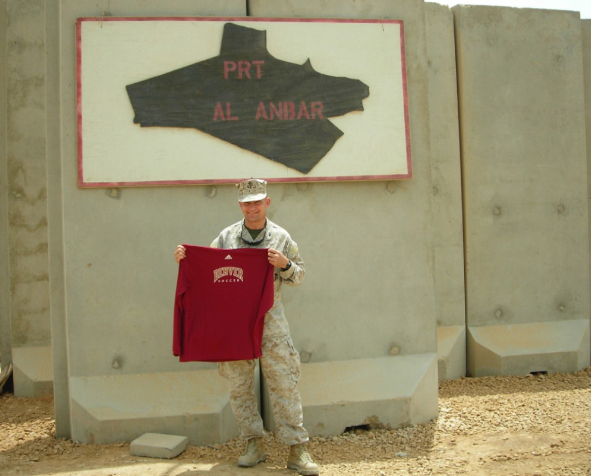Economics Alumnus Helps Colorado’s Rural Economies
For University of Denver economics alumnus Bryce Jones (MA ’21), traveling to scenic locations is just one of the benefits of his work as a rural data analyst with The Colorado Office of Economic Development and International Trade. He’s been to Hugo, Greeley, Brush, Alamosa and Pueblo, where he meets with regional teams and also engages with residents as he collects and analyzes demographic, socio-economic and business development trends across Colorado’s 54 rural counties. Jones then transforms this data into critical information used to make larger structural decisions about how to allocate funding and other government resources to these communities.
This project prioritizes the recovery of rural communities from peak-pandemic economic loss at all levels of economic security. Jones credits his experiences in the economics master’s program at DU for his ability to jump right into a highly specialized career.
“My relationships with my cohort alongside my professors definitely helped guide me and my professional path,” says Jones.
Originally from Idaho, Jones was looking for a heterodox economics graduate program in the inter-mountain West when he happened to see DU Associate Professor of Economics Markus Schneider present his research. Schneider quickly became one of Jones’ mentors once he began his studies at DU, as did Henning Schwardt, assistant professor of economics, who later served as Jones’ thesis advisor.
Before even arriving in Denver, Jones knew that he wanted to eventually work in the public sector, specifically under the direction of the state or federal government, and found courses in econometrics, advanced microeconomics, growth technology and economic policy complementary to his long-term professional goals.
“For some of the more applied data analysis, advanced microeconomics shed light on market discussions, while electives such as growth technology and economic policy come to mind when I’m analyzing complexity and uncertainty,” Jones says.
Jones strategically studied how growth is evaluated in economics, and he completed his thesis on evaluating nuclear energy as a component of U.S. national energy innovation systems.
In addition to carving out meaningful relationships with professors, Jones found common ground with members of his cohort and further established professional and communal footing through service as a teaching assistant. During his second year, Jones was able to assist with intermediate micro- and macroeconomic theory courses and enjoyed both grading and leading problem-solving study sessions, which allowed his procured knowledge to come full circle.
Jones also secured a summer internship as an economic analyst for the Western Governors’ Association while completing his degree. This allowed for extensive economic research on the EPA, the U.S. Forest Service and the Bureau of Land Management; work Jones believes supported his quick transition from graduate student to professional. Jones encourages prospective and current graduate students to seek out internships within the field and to build a strong quantitative background through coursework and academic service work.
“Going into graduate school, I knew I wanted to work with economic data for state or federal government. As I learned more about economics at DU, I knew that I wanted to help more with work at the ground level for government policy,” Jones says. “DU definitely fulfilled my expectations and then some.”






